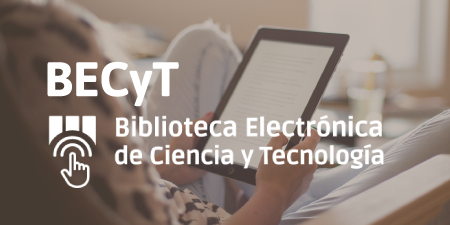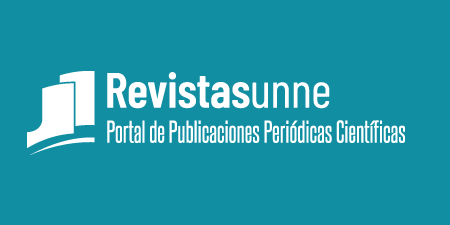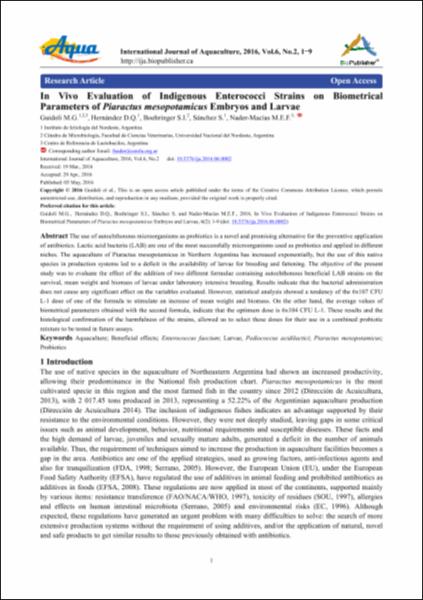In vivo evaluation of indigenous enterococci strains on biometrical parameters of piaractus mesopotamicus embryos and larvae
Fecha
2016Autor
Guidoli, Marcos Gabriel
Hernández, David Roque
Boehringer, Silvia Irene
Sánchez, Sebastián
Nader Macías, María Elena Fátima
Metadatos
Mostrar el registro completo del ítemResumen
The use of autochthonous microorganisms as probiotics is a novel and promising alternative for the preventive application
of antibiotics. Lactic acid bacteria (LAB) are one of the most successfully microorganisms used as probiotics and applied in different
niches. The aquaculture of Piaractus mesopotamicus in Northern Argentina has increased exponentially, but the use of this native
species in production systems led to a deficit in the availability of larvae for breeding and fattening. The objective of the present
study was to evaluate the effect of the addition of two different formulae containing autochthonous beneficial LAB strains on the
survival, mean weight and biomass of larvae under laboratory intensive breeding. Results indicate that the bacterial administration
does not cause any significant effect on the variables evaluated. However, statistical analysis showed a tendency of the 6x107 CFU
L-1 dose of one of the formula to stimulate an increase of mean weight and biomass. On the other hand, the average values of
biometrical parameters obtained with the second formula, indicate that the optimum dose is 6x104 CFU L-1. These results and the
histological confirmation of the harmfulness of the strains, allowed us to select these doses for their use in a combined probiotic
mixture to be tested in future assays.
Colecciones
- Artículos de revista [443]





